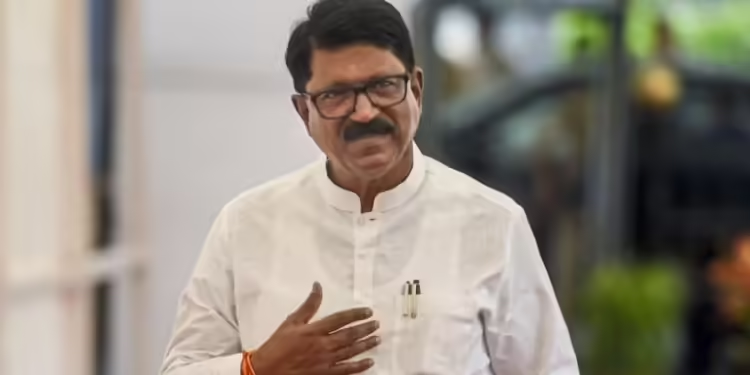There is not much to expect from the opposition parties in India in terms of administration but should the nation not even expect the politicians from the opposition parties to have basic decency with women? Recently the Shiv Sena UBT leader Arvind Sawant threw an extremely derogatory remark against Shaina NC, the former BJP leader who switched to Shiv Sena before the Maharashtra assembly elections.
Arvind Sawant who hails from Shiv Sena UBT made headlines by referring to Shaina NC an “imported maal.” During a media briefing, Sawant criticized Shaina’s transition from the BJP, suggesting that “Humare yahan imported maal nahi chalta (Imported material does not work here). Only original ‘maal’ works here.”
https://x.com/PadmajaJoshi/status/1852255330245173366
The derogatory and sexist remarks of Arvind Sawant against Shaina provoked strong reactions, with Shaina asserting that such comments objectify women and reveal a troubling attitude within the party Arvind Sawant comes from. In response to Sawant’s controversial statement, Shaina NC filed a police complaint, declaring that she is “no one’s maal” and demanded respect for women.
Shaina NC lashing out at Arvind Sawant said “This reflects the mindset of Arvind Sawant and his party. Does he think every woman of Mumbadevi is a maal? On one side there is Eknath Shinde’s Ladki Behan Yojana, on the other side there is Prime Minister’s Ujjwala, Mudra Banking, Housing Scheme, where women are empowered. Droupadi Murmu, a tribal woman, becomes the President and on the other side Mahavinash Aghadi’s Arvind Sawant calls me ‘Imported maal‘,”.
Politics without an iota of double is a burdensome journey for individuals lacking a godfather or who has an established political lineage but politics as an option is most challenging for women. For women, the challenges of politics do not only involve the challenges of the field but it unfortunately extends to gender.
While facing the field challenges politics offers, women have to continue fighting against being seen as objects and deal with crude remarks that belittle their achievements by tying them to their gender.
Sadly, many women in politics hear whispers from the “boys’ club,” suggesting that their success comes from sexual favors rather than their talent and hard work. This culture not only discredits them but also reinforces harmful stereotypes about women leaders.
Despite these challenges, many women politicians don’t give up. They continue to fight for their communities and break down barriers, proving that they are capable leaders. They prove that with strength and determination, women can overcome prejudice and discrimination in politics, making it a better place for everyone.
We have heard about the culture of casting couch in Indian politics. Journalist Ashok Wankhede a month ago revealed how Congress MP KC Venugopal prioritized personal relationships over party stability when distributing election tickets. Former AICC spokesperson Radhika Khera echoed similar concerns, describing a pervasive “casting couch” culture within the party that undermines women’s empowerment.
Female leaders like Sharda Rathore and Simi Rose Bell John too voiced their discontent over favoritism and internal harassment, with Bell John facing expulsion for her comments.
We have also come across incidents of numerous cases of harassment against women in politics. During the Haryana elections a female leader was openly harassed by Congress party workers. Priyanka Chaturvedi in 2019 too had to resign from Congress for the same reason. Youth Congress President Angkita Dutta was expelled from the party after she reported harassment only underscores a troubling pattern of neglect toward women’s safety.
These incidents underscore a deeply concerning issue regarding women’s safety within political circles. Altogether, these incidents reveal a systematic failure to ensure women’s safety and equal treatment!!!!!

























